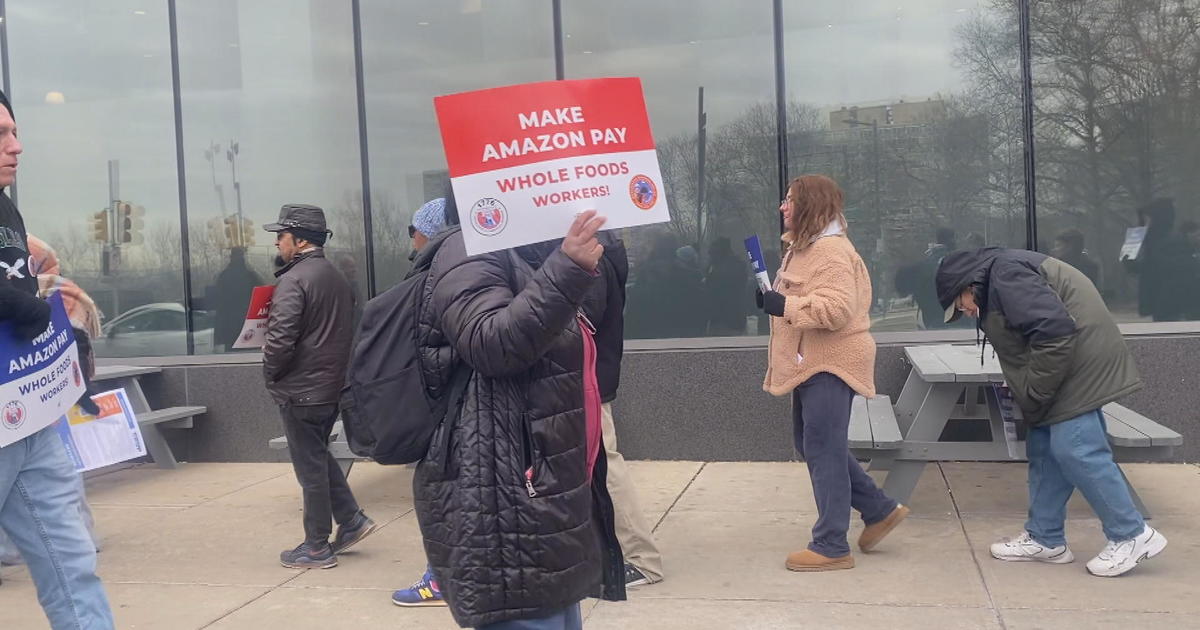Groundbreaking Unionization: Philadelphia Whole Foods Workers Make History
In a landmark move, employees at a Whole Foods Market in Philadelphia have successfully unionized, marking a significant achievement as the first unionized store within the Amazon-owned grocery chain. This groundbreaking unionization not only reflects the changing tides of labor rights but also signifies a pivotal moment in the ongoing labor movement across the United States. As workers strive for better conditions, fair wages, and a voice in the workplace, this victory raises questions about the future of worker rights in major corporations and the ripple effects it may have in various industries.
The Journey to Unionization
The road to this historic unionization was not without its challenges. Employees at the Philadelphia Whole Foods Market began discussing their working conditions, pay, and benefits, realizing that collective action could help them achieve their goals more effectively than individual efforts. With the support of the United Food and Commercial Workers Union (UFCW), they organized meetings, shared their stories, and built solidarity among their coworkers.
Throughout this process, the workers faced significant hurdles. Unionizing in a company like Whole Foods, known for its progressive branding, was seen as daunting. However, the employees were resolute. They conducted outreach to educate their coworkers about the benefits of union membership and how it could empower them to negotiate for better working conditions.
The Vote and Its Implications
After months of organizing, the moment of truth arrived: the vote. In a tense atmosphere, employees cast their ballots, and the results were overwhelmingly in favor of unionization. This victory not only empowered the workers at the Philadelphia location but also set a precedent for other Whole Foods employees across the country. The implications of this unionization are far-reaching and may inspire other workers within the Amazon ecosystem and beyond to pursue similar paths.
- Increased Wages: One of the primary motivations for the workers was to secure better wages that reflect the cost of living in Philadelphia.
- Job Security: Unionization often leads to enhanced job security, as collective bargaining agreements can protect employees from arbitrary dismissals.
- Improved Working Conditions: The union aims to advocate for better working conditions, ensuring that employees have a safe and healthy workplace.
- Benefits and Rights: Workers are hoping to negotiate better benefits, including health insurance, paid leave, and retirement plans.
The Broader Context of Labor Movements
This historic unionization at Whole Foods is part of a larger trend in the labor movement, which has seen a resurgence in recent years. More workers, particularly in the retail and service industries, are recognizing the power of collective bargaining. The COVID-19 pandemic highlighted many issues within the workforce, including unsafe working conditions and inadequate pay, leading to increased solidarity among workers.
As more employees push for union representation, major corporations are finding themselves at a crossroads. The rise of unionization efforts poses a challenge to traditional corporate structures, which often resist union involvement. This shift could lead to a re-evaluation of corporate policies and practices as businesses attempt to address worker concerns while maintaining profitability.
Philadelphia’s Whole Foods and Its Place in History
Philadelphia has long been a city of labor activism, with a rich history of unions fighting for workers’ rights. The successful unionization of the Whole Foods Market is a continuation of this legacy. It illustrates that workers can unite and make their voices heard, even in large corporations that may seem unyielding. The Philadelphia Whole Foods workers are not just setting a precedent for their store; they are inspiring workers nationwide to stand up for their rights.
Furthermore, this achievement challenges the image of Whole Foods as a progressive employer. Historically, the company has marketed itself as a champion of ethical sourcing and community involvement. However, the unionization effort reveals the complexities of corporate culture and the reality that, despite its image, workers still seek to assert their rights and improve their conditions.
The Future of Unionization in Major Corporations
The successful unionization of Philadelphia’s Whole Foods workers is likely to spark further movements within the Amazon ecosystem and other major corporations. As workers across various sectors evaluate their rights and conditions, this victory serves as a beacon of hope. It demonstrates that collective action can lead to significant change, even in companies with considerable resources and influence.
Moreover, the ongoing discussion surrounding worker rights, wages, and job security is likely to gain momentum. As more workers feel emboldened to organize, major corporations may need to reconsider their approaches to employee relations. This could lead to more constructive dialogues between management and employees, fostering a workplace culture that prioritizes collaboration and mutual respect.
Conclusion: A New Chapter for Workers’ Rights
The groundbreaking unionization of Whole Foods workers in Philadelphia is a historic achievement that reflects the broader labor movement’s momentum. It highlights the importance of solidarity among workers and serves as an inspiration for those seeking to improve their working conditions. As we look to the future, the implications of this victory will likely resonate throughout various industries, prompting discussions about wages, benefits, and workplace rights.
As the labor landscape continues to evolve, it is essential to support and amplify the voices of workers. The Philadelphia Whole Foods employees have shown that change is possible through collective action, and their success may pave the way for a more equitable and just workplace for all. With this victory, they have not only made history but have also ignited a movement that could transform the future of work in America.
See more Business Focus Insider Team

